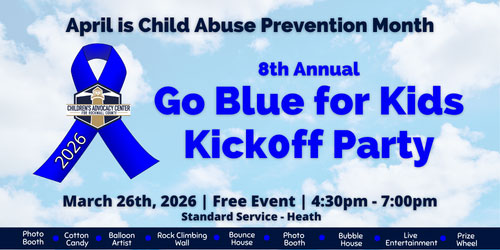
(ROCKWALL, TX – Aug. 15, 2016) Texas has a reputation for embracing youth sports. We enjoy cheering from the sidelines for our young athletes and the team. We accept that injuries are possible but acknowledge them as part of the experience. However, if injuries do occur, the fun is replaced with worry – particularly the possibility of concussion, a form of brain injury.
Concussions take athletes out of the game they love, at least for a time, and may include time away from school and social events. More importantly, concussions can be a serious medical concern. Yet they can also go undiagnosed if athletes don’t show immediate signs and/or do not self-report. While not easily predicted, long term effects such as memory problems, emotional disturbances and inattention can occur especially if not diagnosed early and managed appropriately. Therefore, as with any injury, proper diagnosis and treatment is important to the healing process.
As parents, we are responsible for the health and safety of our children. When it comes to concussion we put a lot of trust in the coaches and officials who are actively involved in the game. Is there something else we can do?
- Impress upon your student athlete the importance of communicating any injury or problem they experience. Simply having a headache following an incident to the head or indirect trauma such as whiplash warrants evaluation.
- Consider a baseline neurocognitive test for your student athlete. It may be a good idea for those who participate in contact sports past the age of 11.
What is a baseline test? It is a simple and fairly inexpensive procedure that gauges cognitive processes before a concussion. It is similar to taking a benchmark test to see “where you are now.”
“This information can be used to evaluate the athlete’s cognitive abilities after injury comparative to what they were prior to injury,” says Robert Stark, MD. “It is most useful in terms of making sure an athlete is back to ‘normal for them’ and safe to return to play. It is one of the tools used in the management of concussion, but does not replace clinical judgment in any case.”
Parents can arrange baseline tests through specially trained physicians, such as Dr. Stark. As a Credentialed ImPACT® Consultant, he has the knowledge to ensure the test is carried out with the highest degree of confidence. Parents receive a report that provides access to the results should they be needed in the future. These results, when compared with a subsequent test, provide important information to the physician to determine the severity of the brain injury, if any. This allows the physician to determine the best course of treatment.
Today many tools are improving the welfare of young athletes. Baseline neurocognitive testing as well as upgraded equipment, better training and greater emphasis on safety have a positive effect on their well-being. There is no need to keep children out of athletic adventures for fear of injury. Parents simply need to be aware of the tools and resources available that offer not only the best protection against injury but also the best path for healing should an injury occur.
 Submitted by Texas Health Presbyterian Hospital Rockwall. The Sports Medicine Center at Texas Health Rockwall offers a full range of care for athletes of all ages. For a full list of services, visit RockwallSportsMed.com.
Submitted by Texas Health Presbyterian Hospital Rockwall. The Sports Medicine Center at Texas Health Rockwall offers a full range of care for athletes of all ages. For a full list of services, visit RockwallSportsMed.com.
 Congratulations to Texas Health Presbyterian Hospital Rockwall for being named among the Best Places to Work by Modern Healthcare, again!
Congratulations to Texas Health Presbyterian Hospital Rockwall for being named among the Best Places to Work by Modern Healthcare, again!
_________________________________________
 Your #1 source for positive hometown stories, entertainment and events.
Your #1 source for positive hometown stories, entertainment and events.
Our print edition is delivered free to 18,000+ homes in Rockwall and Heath, TX.
To share your good news and events, email editor@BlueRibbonNews.com.
For advertising inquiries both online and in print, call 214-342-8000 or email advertising@BlueRibbonNews.com.
Download the FREE Official Rockwall Area App for Apple iPhone or Android.









